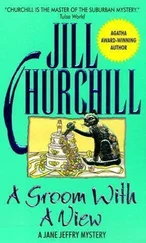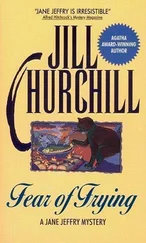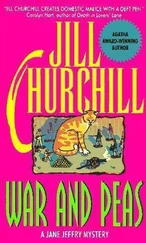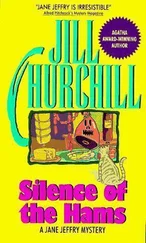Churchill went to bed on Wednesday night convinced that those numbers would favour the Conservatives. Sometime before daybreak, he awakened suddenly with a stabbing pain that told him the election was lost and the power to shape the future would be denied him. In anguish, he rolled over and slept until nine. About an hour later, Churchill was in his bath when he learned from an aide that his premonition of disaster was being amply confirmed by the early poll figures.
After he had dressed in a blue one-piece zip-up siren suit, he went to his Map Room. Over the next few hours, Churchill, surrounded by charts of constituencies and of the most recent state of the election, reacted to the news of each Labour gain by silently, stoically nodding his head. He complained only of the heat and the want of air. The Conservatives were out. Churchill had been returned in his constituency, Woodford. But overall there had been a Labour landslide, and Britain was to have a new prime minister.
Mrs Churchill, tall, silvery-haired, with proud posture and a profile said to resemble a ship’s prow, suggested to her husband that the outcome of the election might prove to be ‘a blessing in disguise’.
He replied, ‘At the moment it seems quite effectively disguised.’ It was inconceivable that he had been cut off altogether from Potsdam. Initially, he insisted he would wait to take his dismissal from the House of Commons, as he was entitled to do. Then in his pride he declared that nothing would induce him to go back to Potsdam, though he was not yet ready to resign immediately either.
He spoke vaguely of stepping aside on Monday, though that would mean asking Stalin and Truman to wait in Germany until he made up his mind. Finally, Churchill accepted that under the circumstances he really had no choice but to resign at once – and let the talks go on without him. All of his great plans, everything he had so carefully set up, must remain unrealized.
Some twenty-four hours after he had raced to Buckingham Palace to speak to the King of his hopes, Churchill returned to tender his resignation. The King offered him the Order of the Garter but Churchill declined the high honour in the belief it would be wrong to accept it after what he saw as a public rebuff of his leadership. He drafted a statement to be read aloud to the nation on the BBC at 9 p.m. He stated that as a consequence of ‘the decision of the British people’, he had laid down the charge which had been placed upon him in darker times.
Thursday was devoted to immediate concerns. The next morning, he awakened to the realization of what the people’s decision meant for him personally. In years past, Churchill had been known to declare that in war one can only be killed once, but in politics many times. Politicians, he once wrote, expect to fall and hope to rise again. In the face of staggering rejection, numerous setbacks and many apparent dead ends, obstinacy had kept Churchill pounding on when fainter spirits might have given up. ‘No’ was an answer he had repeatedly refused to accept. ‘Unsquashable resilience’ had long been among his defining characteristics. He had justly been said to have more lives than a cat and to have survived as many arrows as legend planted in the flesh of Saint Sebastian.
This time, everything seemed different to him, and it was his age that made it so. By most estimates the magnitude of the Labour victory, a majority of 146 seats in the House of Commons, suggested that the Conservatives could not hope to return to power for at least a decade. Some people went so far as to say that Labour was in for a generation. For Churchill, as for his party, there was no avoiding the likelihood that by the time he had another chance at the premiership – if he ever did – he would be at least eighty.
Throughout the day, as he said goodbye to some of the people who had worked most closely with him during the war, he seemed absorbed by the idea that a comeback was impossible. The previous night he had briefly thought the new Labour Government might be turned out soon enough, but the final numbers left no such hope. After a farewell meeting with his Cabinet, he lingered privately to talk to Eden. Churchill expressed confidence that the Conservative heir apparent would surely sit in the Cabinet Room again.
‘You will,’ Churchill said with more than a dash of bitterness, ‘but I shall not.’
Churchill once observed that a man’s only real necessities in life are food and a philosophic temperament. All day Saturday at Chequers, which he had yet to vacate, he appeared remarkably cheerful and controlled, but after dinner and a film screening, his mood darkened noticeably. Attlee had returned to Potsdam a day later than scheduled and the talks resumed that very night at ten. The new Big Three worked at the conference table in the Cecilienhof until after midnight.
Cut off from all that forever, it seemed, Churchill sat into the night listening to Gilbert and Sullivan and other recordings on his gramophone.
Конец ознакомительного фрагмента.
Текст предоставлен ООО «ЛитРес».
Прочитайте эту книгу целиком, купив полную легальную версию на ЛитРес.
Безопасно оплатить книгу можно банковской картой Visa, MasterCard, Maestro, со счета мобильного телефона, с платежного терминала, в салоне МТС или Связной, через PayPal, WebMoney, Яндекс.Деньги, QIWI Кошелек, бонусными картами или другим удобным Вам способом.












